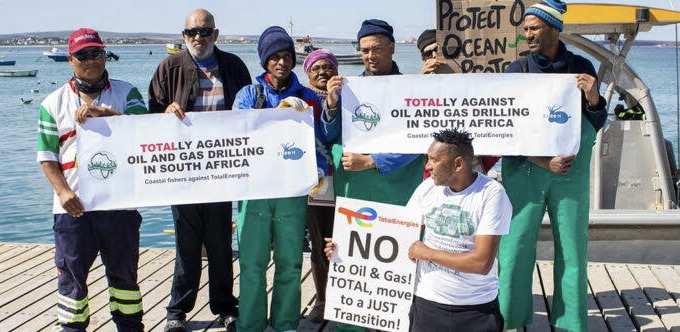233
Environmental advocacy groups have taken legal action, approaching the High Court, to challenge TotalEnergies’ plans for drilling off the coast of Cape Town. This move signals growing concerns over the potential environmental impact of oil exploration in sensitive marine ecosystems.
The decision to pursue legal recourse comes amidst mounting opposition from environmentalists who fear the repercussions of offshore drilling on marine life and coastal communities. TotalEnergies’ proposed project has sparked fierce debate, with activists calling for greater transparency and accountability in the assessment of environmental risks.
At the heart of the dispute is the need to balance economic development with environmental conservation. While proponents argue that oil exploration could bring economic benefits and energy security, opponents emphasize the importance of safeguarding fragile ecosystems and mitigating the risks of oil spills and pollution.
The legal challenge underscores the broader global conversation surrounding fossil fuel extraction and climate change mitigation. As countries around the world commit to reducing greenhouse gas emissions and transitioning towards renewable energy sources, the role of fossil fuel industries in driving environmental degradation is increasingly scrutinized.
TotalEnergies’ Cape Coast drilling plans have reignited debates over the future of energy production and consumption, prompting calls for a transition towards cleaner, more sustainable alternatives. Environmentalists are urging policymakers and industry leaders to prioritize renewable energy investments and adopt measures to protect the planet for future generations.
As the legal battle unfolds, there is hope for a constructive dialogue that balances the interests of stakeholders while prioritizing environmental preservation. By fostering collaboration and innovation, it is possible to pursue economic development in harmony with nature, ensuring a sustainable future for all.
Source: Engineering News
The decision to pursue legal recourse comes amidst mounting opposition from environmentalists who fear the repercussions of offshore drilling on marine life and coastal communities. TotalEnergies’ proposed project has sparked fierce debate, with activists calling for greater transparency and accountability in the assessment of environmental risks.
At the heart of the dispute is the need to balance economic development with environmental conservation. While proponents argue that oil exploration could bring economic benefits and energy security, opponents emphasize the importance of safeguarding fragile ecosystems and mitigating the risks of oil spills and pollution.
The legal challenge underscores the broader global conversation surrounding fossil fuel extraction and climate change mitigation. As countries around the world commit to reducing greenhouse gas emissions and transitioning towards renewable energy sources, the role of fossil fuel industries in driving environmental degradation is increasingly scrutinized.
TotalEnergies’ Cape Coast drilling plans have reignited debates over the future of energy production and consumption, prompting calls for a transition towards cleaner, more sustainable alternatives. Environmentalists are urging policymakers and industry leaders to prioritize renewable energy investments and adopt measures to protect the planet for future generations.
As the legal battle unfolds, there is hope for a constructive dialogue that balances the interests of stakeholders while prioritizing environmental preservation. By fostering collaboration and innovation, it is possible to pursue economic development in harmony with nature, ensuring a sustainable future for all.
Source: Engineering News



